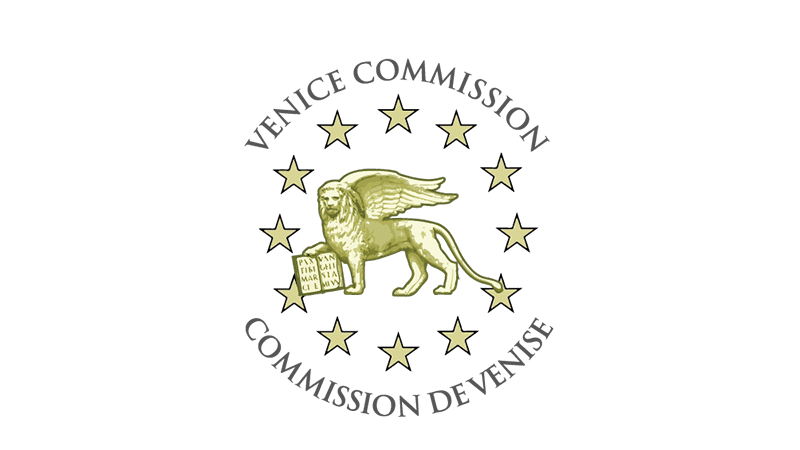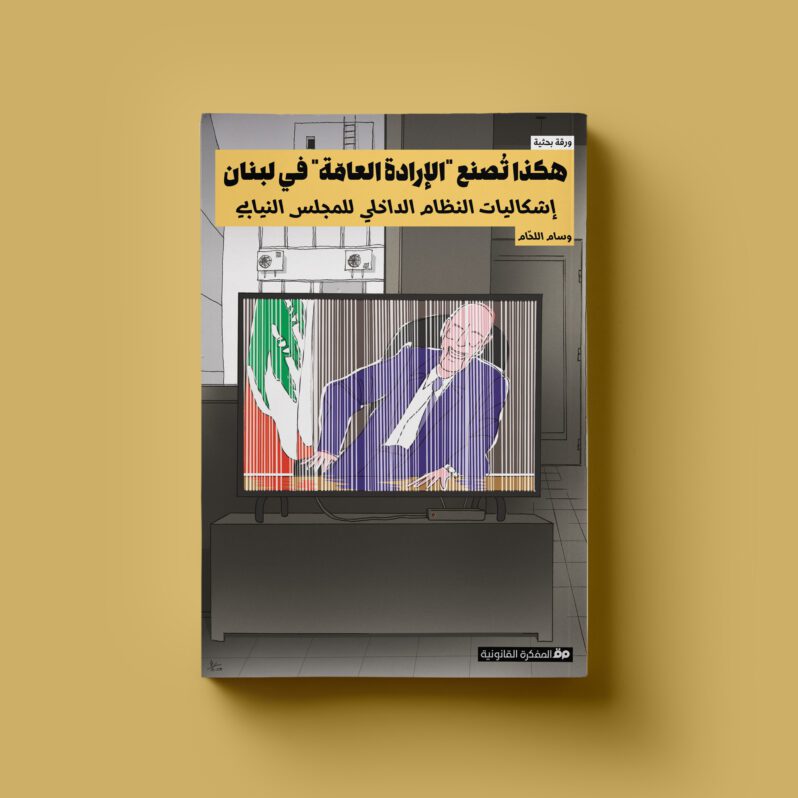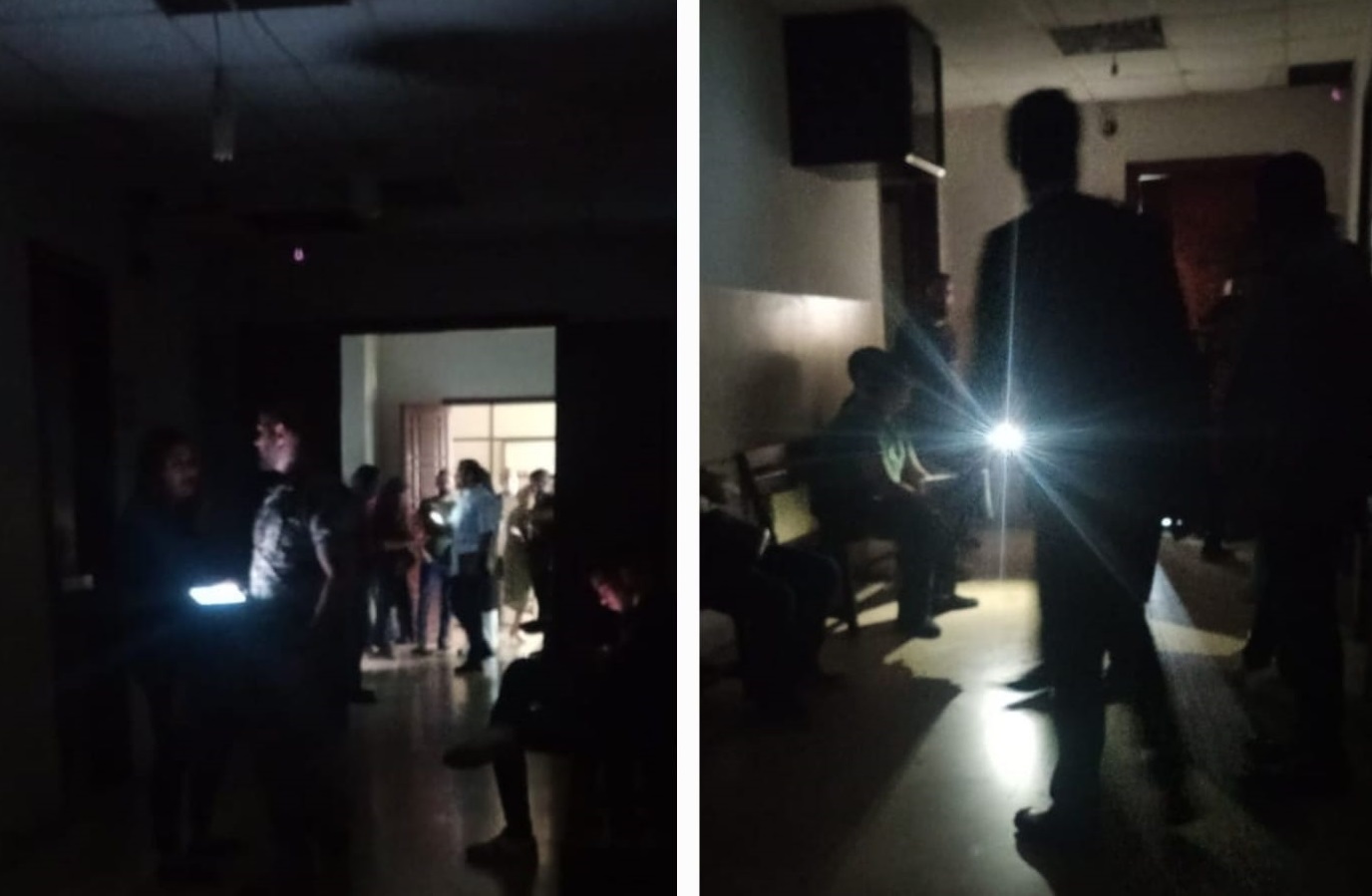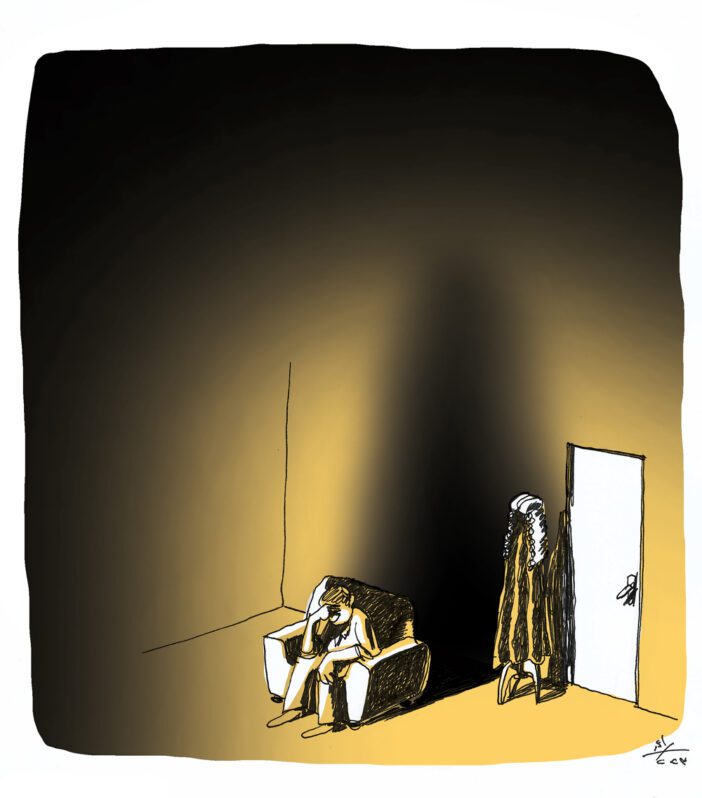Redeeming Public Policy in Lebanon: Putting the Republic on Trial
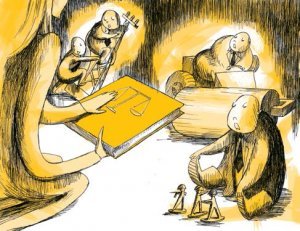
In September 2014, a number of political figures presented two petitions to Lebanon’s State Council, requesting that it form a judicial body to supervise the administration of public funds, taxation, and borrowing.[1] The petitioners called for the establishment of some sort of judicial receivership over the state.[2] The petitions were prompted by the failure of Lebanese authorities, for nearly a decade, to fulfill their national and constitutional duty to adopt an annual public budget. These authorities have continued to work in accordance with the 2005 budget law, but with huge increases in spending sanctioned by extra-budgetary laws and decrees. The petitions point out that, constitutionally speaking, the validity of the 2005 law ended on February 1, 2006. This would mean that the procedures for taxation, public spending, and borrowing that have been ongoing since then –and which amount to billions of dollars– are in fact illegal.
On this basis, the petitioners described the judiciary as a last and final resort [to seek redress]. They requested that it intervene to put a stop to an aberrant and ongoing reality, and as such, address its repercussions for the vital functions of the state and the political system as a whole. The petitioners insinuated that this persistent negligence regarding public funds is leading to the entrenchment of a regime of elites [zu‘ama] at the expense of what is left of citizenship, or of a democratic system. The judiciary, they argued, needs to confront a reality that has led, practically speaking, to the restriction of participation in public life to a handful of individuals. The petitions therefore requested that the judiciary issue a decision in order to rescue the state, and reestablish the concept of the constitutional (republican) state and its requirements.
Whatever the outcome of these two petitions, their timing and the fact that they were initiated by politicians grant them some significance. It sheds light once again on the importance of the judiciary as a platform to highlight social issues, including those with political dimensions. To that end, it is an invitation to serious consideration, both in public opinion and within the judiciary itself, of what is expected of the judicial profession given the current social and political conditions.
The Judiciary as a Platform
The question that presents itself here is: what is it that motivates political figures to bring an ongoing issue like this before the judiciary? Why have they opted to resort to the judiciary, which has scarcely any expertise in the tools of politics and the media that are so familiar to these politicians? Why have they described the judiciary as the last and final resort, rather than seek these other frequently used methods?
Litigation that aims to stop a particular practice or enshrine a specific right (strategic litigation) has definitely progressed in Lebanon in recent years. So far, however, it has been limited to social groups who suffer from inequity or social marginalization. For instance, the relatives of people who have disappeared secured a ruling on March 4, 2014 from the State Council that consecrated their right to know the truth about the fates of the disappeared. This ruling established this right as a natural one, without exception or restriction.[3] The fact that today’s political figures are resorting to similar forms of litigation is even more worthy of attention, because it indicates the restrictive and fruitless nature of the political sphere. The context of strategic litigation makes the question of politicians resorting to the judiciary more pressing. In what follows, I pose several possible propositions as to why this type of action was adopted by these politicians.
The First Proposition:
It was the nature of the issue in dispute that led the petitioners to consider the judiciary as the natural choice for the authority they need to resort to. Given the extent of the offense, it stands to reason that the petitioners’ dispute with governing authorities is portrayed, first and foremost, as a constitutional and a legal one.
The confrontation is thus portrayed as an act of resistance performed by officials who support the rights of the state and the citizenry, against an authority that has been accused of corruption, and of systematically attacking the foundation of the state and its components. For the petitioners, it is no longer possible to deal with the matter by exchanging pleasantries, engaging in discussions, or omitting to act.
To drive this point home, the petitions placed the authorities’ contested decision to authorize extra-budgetary funds within a broader framework. The authorities’ decision [to work according to the 2005 budget law] is not merely an isolated violation of the constitution. Instead, the decision is – according to the petitioners – “the inevitable result of a series of illegal decisions and decrees, without which the issuance of law would have been neither possible nor justified. Considered altogether, these constitute systematic actions that, although based on invalid arguments, have become stable and definite, and aim to obstruct the legal and constitutional basis for the administration of public funds”, with the result of “demolishing public order and appropriating public funds”.
Indeed, the petitioners went so far as to say that obstructing the issuance of the budget for a decade is both an essential mechanism of sustaining the current regime, and a product of its rule. The petition goes on to say that, “this mechanism necessarily presumes the absence of existing constraints, or of subsequent control over the use of public money. In particular, the budget -as an existing constraint- and audited accounting of public funds -as a means of subsequent control- have both been invalidated”. In this respect, the petition discussed in detail all of the constitutional and legal provisions that have been violated throughout the past decade. It demonstrated in numbers (in amounts of unlawful taxation and expenditures) the legal technicalities used to circumvent the law, as well as the resulting dangers.
It must be noted that the petition completely disregards the traditional identification of the Lebanese political system as “sectarian”, describing it instead as a system of elite rule [nizam zu‘ama]. Employing the terminology of sectarianism renders the system of divvying up [power and wealth] as one between different social groups that make up the social fabric; in practice, this [description] allots responsibility in a generalized manner, thereby obfuscating the actual culprit. Describing the system as one of rule of the elites, on the other hand, reframes the legal violation under discussion as a process of plundering the state by the ruling few.
The petition aimed to link the issue of the budget with the progression of the rule of the elites, by laying out the absence of a budget as evidence of the absence of the state. On October 15, 2014, petitioner and former Lebanese Minister Charbel Nahas, adopted this approach in his presentation to the country’s Lawyer’s Syndicate: “We inherited from the mandatory colonizing state [France] a copycat of its parliamentary constitution, which entrusted ‘the representatives of the people’ with the mission to grant the executive authority the power to spend, tax, and borrow, year by year, provided that spending in the previous year was audited and approved. The fulfillment of this task regressed gradually in tandem with the decline of the order of the state. Even during the days of the [Lebanese Civil] War, we had a state. It may have been weak, but it set budgets and conducted audits. During the era of Syrian tutelage, we had something that resembled a state, which set something that resembled budgets, and did something that resembled accounting. Also, after the departure of the Syrian arbiter, we were left with no state, and the feudalists were let loose. A logic of entitlement and unlawful appropriation reigned and there was no state, no budgets, and no accounting.”
Such a narrative necessarily requires the petitioners to adopted respectively consistent discourse of rupture and condemnation of the entire political system, and its guardians of the petition made a decision to use the rhetoric of rupture and condemnation. It follows that they seek redress at the most appropriate place for such a discourse, namely, the judiciary.
The Second Proposition:
The judiciary appeared to be the only institutional resort given the obstruction of state institutions and the emergence of public mobilization.
This second explanation follows from the kind of characterization by the petitioners of political and social realities as described above. They concluded their petition by describing the replacement of “a constitutional state system…for a system of separate yet mutual transactions carried out by a limited number of elites, who are careful to elaborate the mechanisms by which they can veto and counter-veto each other, within two bodies that exist in form only: parliament and the cabinet. They do this by various justifications, from setting the quorum, to setting the agenda to the right of signatory power”.
In other words, the elites according to the petition have come to control the institutions of the state, and the executive and legislative authorities are mere tools that nominally ratify whatever the elites decide, without wielding any authority of their own. Thus, “the only way to pass any decision, election, or appointment is by bargaining over its content, and extending the benefits that are extended to the elites and [their] clients”. Naturally, the self-extension of the mandate of parliament, and the mobilization for a second extension (which eventually took place) are further proof of this configuration. The extension ensures that the political class remain in their current posts while blocking any possibility of seeking the arbitration of the electorate.
The Third Proposition:
For the petitioners, legal prosecution seemed to be the most effective and appropriate weapon for confronting an authority that has come to control formidable resources.
Such a course is the result of the petitioner’s characterization of the reality of this regime, which inevitably imparts enormous power to these elites through the resources they control, as well as through a clientelist base established and successfully reproduced by virtue of these resources and the popularity they derived from their charisma and sectarian-based loyalty.
The more opponents of the ruling system who wish to form a popular force to confront it are faced with such a reality that renders their aims very difficult to achieve, the more they have a definite interest in moving the confrontation into the realm of the judiciary. The latter is expected to be a neutral arena in which the law reigns, and where carrying the day is a function of proper legal evidence, rather than a reflection of the balance of power among the contestants. Taking the dispute to the judicial arena also allows for increased media interest.
None of what has been said implies that the judiciary is not biased, or that it is not an instrument of power; but, even in the worst case, the judiciary is required to issue a decision regarding the petition, and to base its rulings on legal justifications which are more readily subject to analysis and critique. This, however, requires that the judiciary be legally competent to undertake such a task. This brings us to the second segment of this study, which examines the impact of filing this petition on the role of the judiciary as an authority and decision maker.
The Judiciary as an Authority
Upon scrutinizing the petition, the enormity of the decisions requested of the judiciary becomes immediately clear. The judiciary is asked to address not merely a simple violation, as explained above, but organized and systematic practices of the executive and legislative powers that have come to form part of the primary features of the current political system. From this point of view, it is not an exaggeration to say that in essence, the petition constitutes a platform for the reestablishment –and perhaps even the overturning– of the political and social system [and the jarring effects it has produced] among the political authorities.
The most demanding of requests is the one asking that the State Council to appoint a judicial body to supervise the state’s finances. This request could put a stop to the violations, but it could also lead to the subjection of the ruling institutions’ financial powers to judiciary authority. A ruling to that effect would raise alarm regarding the rule of the judiciary, or its involvement in politics. Moreover, the petition carries increased weight because its sponsors requested the application of summary principles (which allow for the bypassing of normal legal timeframes in the case of urgent matters), to cases the law normally does not apply to. The petitioners justified this by citing the inability of any legal texts currently in effect to put in place the necessary formula for guaranteeing the continued operation of the vital functions of the state, and the maintenance of its public finances. The petition appears to be based upon the principle of “necessary provisions” required in exceptional circumstances. The current situation has no precedent, and “aberrant and ongoing practices have overturned the mechanisms of authority perceived in the constitution, as well as the public order [specified] in its basic texts”. There is no legal means to achieve a solution in the near future other than a judicial decree.
From this standpoint, and in light of this unprecedented situation, it is necessary for the State Council (as a sole and final resort) to issue decisions in unusual and unprecedented ways, so as to issue decisions to spend, tax, and borrow on a legitimate basis (if there is no agreement on the constitutional provisions) – in anticipation that state institutions would become accustomed to functioning according to those judicial rulings.
In this case, the question that presents itself is: what is realistically expected of the State Council on an issue such as this? If it were theoretically reasonable to confront an authoritative regime by issuing courageous judicial decisions (which is what took place, for example, with the issue of relatives of the disappeared), then does the enormity of the offense and the necessity of ending it constitute a sufficient condition for breaching the routine procedures that are currently in place –in order to pave the way for subjecting the executive branch’s financial powers to judicial oversight? Would that lead to a concern that the judiciary could be accused of revolutionary or subversive behaviours, and of exceeding the bounds of the law, the principles of the judiciary, and with it, the principle of separation of powers itself?
By the same token, confusion regarding the mission entrusted to those delegated to monitor [public finances] may bear on the judiciary’s reputation as a whole, and possibly cause greater harm than the one precipitated by the current regime practices. Should the State Council decide not to look into the matter, the judiciary itself may be accused of negligence when it comes to the considerable dangers facing both the public interest and the state as a whole. Considering these issues, and before jumping to conclusions about what the petition may lead to, two observations come to mind:
First, despite the petition’s elaborate explanations of the scope and extent of the offense committed, it remains painfully inadequate. The petition contented itself with reminding the State Council of its national responsibility which warrants its intervention in this case, in the absence of any other valid authority. Thus, it appears that the petitioners are dismissing or disregarding the significance of the step they expect the State Council to take, as well as the endless repercussions it might have for the role of the judiciary and its limitations. At the very least, they seem to leave the task of exploring these implications to the Council after they accomplished their primary task of laying out before it the social problem, in all of its dimensions.
It is then hoped that this petition will be an opportunity to start a real discussion whose significance goes beyond the context of this particular case. In light of the persistence of the current regime and the dwindling of space for political activism, it can be expected that strategic litigation will become an essential outlet for any citizen-based reform movement. Similar questions will then have to be addressed [about the role of the judiciary].
In that context, regardless of the position the State Council takes on the petition, it is nevertheless called to express its opinion about this issue within the content of its decisions and the arguments it uses to support them. The Council’s position on the matter can become rich material for a broad, public debate. It is not an exaggeration to say that in the near future, the very notion of the judiciary’s role in Lebanon may become one of the most important arenas in the confrontation between the prevailing regime and its opponents.
Secondly, it is important to distinguish between two issues regarding the petition: The first is the confirmation of the offense in and of itself, and the second are the necessary measures to stop it. The reason for distinguishing between these two issues is that they present different problems regarding the limitations of the judiciary’s role.
The first issue relates to expecting the State Council to merely ascertain the extent of the violation concerning the ruling authorities’ neglecting, for nearly a decade, to establish a public budget law. This would include outlining the political and social risks precipitated by this negligence, but would not necessarily involve taking the specific measures requested by the petitioners. In this case, the Council’s ruling would be tantamount to a testimonial of the truth against meddling with the state [by its usurpers], and in the interest of the citizen.
Naturally, in this case, the Council would remain within the bounds of its legal competence. Its position would not be subject to accusations of infringement upon the jurisdiction of the legislative or executive power, exceeding legal principles, inciting a coup, or establishing a rule of the judiciary. However, when it comes to the second issue –that is, the question of the Council’s actually taking necessary measures requested by the petition– the situation is different.
In the case of the Council merely establishing the extent of the offense, the harshest possible criticism that could be made of it would be that it has violated the “right of reserve”, through directing strong criticisms towards public authorities by way of judicial decisions. However, such criticism would be rebutted by three different considerations. First, any public official, particularly a judge, is required to ascertain any criminal offense as a precursor for referring it to the public prosecutor authorized to take action against those implicated. This is what would occur in the case of unlawful expenditure, taxation, or borrowing procedures.
Secondly, so long as the offenses being investigated are, on the whole, violating the constitution and the law, the State Council would be acting its legal domain. And third, the “right of reserve” regarding criticism of governing authorities is only mandatory in a relative sense; it is subject to the principle of appropriateness and proportionality. It is also subject to a greater duty: the obligation to break the silence on an issue that has become fatal to what remains of the state and of citizenship.
Make no mistake: if we were to say that the State Council’s silence was necessary on this subject, doubts would arise about the extent of its independence, or at least the extent of its responsiveness to public interest, and its loyalty to society. The State Council’s verification of the violations will compound the importance of the public debate that the petition has provoked. It would be natural for the sponsors, as well as the citizenry, to prompt the judiciary to take further steps on this level, in a growing movement that –it is hoped– will, in the end, fulfill all of its goals.
The second matter –that is, the extent of the State Council’s jurisdiction in accepting the petition’s request that it undertake the measures it specifies– is a thorny issue. It brings up a larger question about the role of the judiciary, and most certainly exceeds the current bounds of the Lebanese judiciary. Discussion of this difficult issue will be taken up after the State Council issues its decision.
This article is an edited translation from Arabic.
_________
[1] The first petition was presented by the former speaker of parliament Hussein el-Husseini, former minister Elias Saba, and representative Ghassan Moukheiber. The second petition was presented by former minister Charbel Nahas, former Member of Parliament Najah Wakim, and Ghada al-Yafi. The two petitions were in agreement with one another.
[2] Its other demands included abolishing a cabinet decree issued on July 24, 2014, that aimed to secure funds requested for salaries and wages, addenda attached to the public budget, in light of the fact that this was based on a budget that was no longer in effect.
[3] See: Ghida Frangieh’s, “The Lebanese State Council Consecrates the Right to the Truth as a Natural Right for Relatives of the Disappeared,” The Legal Agenda, Issue No. 15, March 2014.
